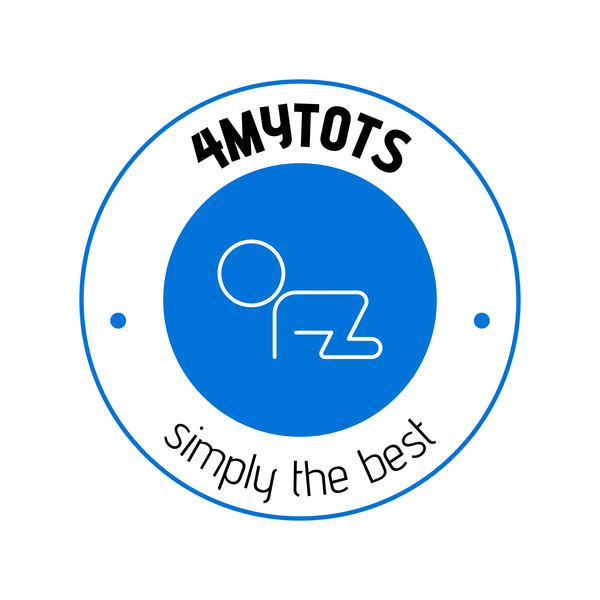A Comprehensive Guide to Baby Formula Feeding: Preparation and Storage Tips
Share
Introduction:
When it comes to providing the best nutrition for your little one, baby formula feeding is a reliable and convenient option. Whether you're supplementing breastfeeding or exclusively using formula, it's important to understand how to prepare and store it safely. In this article, we'll delve into the essential guidelines for preparing and storing baby formula, ensuring that your baby receives the nutrition they need while maintaining their health and well-being.
Importance of Proper Baby Formula Preparation
Step-by-Step Guide to Preparing Baby Formula
Correct Handling and Storage of Baby Formula
Tips for Safe Feeding Practices
Common Mistakes to Avoid in Baby Formula Feeding
Frequently Asked Questions about Baby Formula Feeding
Section 1: Importance of Proper Baby Formula Preparation
Proper preparation of baby formula is crucial to ensure that your little one receives the necessary nutrients in a safe manner. Incorrect preparation can lead to bacterial contamination or inconsistent formula concentration, which may affect your baby's health. By following recommended guidelines, you can reduce the risk of these issues and provide your baby with optimal nutrition.
Section 2: Step-by-Step Guide to Preparing Baby Formula
Start by washing your hands thoroughly and ensuring that all utensils and containers used in formula preparation are clean and sterilized.
Read the instructions on the formula packaging carefully and measure the appropriate amount of water.
Boil water and allow it to cool to the recommended temperature (usually around 158°F or 70°C) before mixing with formula powder.
Add the correct amount of formula powder to the water according to the instructions, ensuring accurate measurement.
Gently shake or stir the mixture until the powder is completely dissolved, and check the temperature again before feeding.
Section 3: Correct Handling and Storage of Baby Formula
To maintain the freshness and quality of the baby formula, it's crucial to handle and store it correctly. Here are some essential tips to follow:
Store unopened formula cans or bottles in a cool, dry place away from direct sunlight.
Once opened, tightly seal the formula packaging to prevent moisture or contamination.
Avoid using expired formula. Always check the expiration date before use.
Do not leave prepared formula at room temperature for more than one hour.
Discard any leftover formula after each feeding to minimize the risk of bacterial growth.
Section 4: Tips for Safe Feeding Practices
Aside from preparing and storing baby formula correctly, there are additional safety measures to consider during feeding:
Hold your baby securely during feedings to minimize the risk of choking.
Use clean and sterilized bottles and nipples, and inspect them regularly for signs of wear and tear.
Follow your baby's cues for hunger and fullness, ensuring they are not overfed or underfed.
Avoid propping the bottle or letting your baby fall asleep with it in their mouth, as it can lead to dental issues or ear infections.
Section 5: Common Mistakes to Avoid in Baby Formula Feeding
While the process of baby formula feeding is relatively straightforward, it's important to be aware of common mistakes to ensure the safety and well-being of your baby. Some mistakes to avoid include:
Incorrectly measuring the formula powder, leading to diluted or concentrated formulas.
Using tap water without boiling or following local water safety guidelines.
Mixing different brands or types of formula without consulting a healthcare professional.
Ignoring your baby's cues for hunger and fullness, resulting in overfeeding or underfeeding.
Section 6: Frequently Asked Questions about Baby Formula Feeding
Is it necessary to warm the formula before feeding?
In most cases, yes. Warm water helps dissolve the formula powder to make a smooth mixture and provides even nutrition throughout the feed. Also, babies generally won't accept cold milk or formula. Warmed formula is more similar to the temperature of breast milk and easier for babies to tolerate.
Can I refrigerate or freeze prepared formula for later use?
It is generally not recommended to refrigerate/freeze formula. Babies need the feed to be prepared just prior to consuming. Also, if a feed is not completed or interrupted, it should be used or discarded in less than an hour. The risk of spoiled formula or bacterial growth is not worth "saving" unused prepared formula. It can make your child sick.
What should I do if my baby refuses to drink formula?
Try different positions during feeding, different nipples or different bottles. Also, check the temperature to make sure it is not too hot or too cold. Sometimes, you might have to try a different formula. All babies are different. 4mytots.com has several formulas from Europe that are very similar to breast milk and are usually well-tolerated. View our collection here.
How do I transition my baby from breastfeeding to formula feeding?
Follow your baby's cues. Often, breast milk production can dwindle after 6 months post-partum as mom's hormone levels change. It is best to be prepared. Keep high quality formula on hand for the transition. Introduce formula milk in feeds just as you did with breast milk. Be patient. This is a big transition for babies as well.
Conclusion:
Preparing and storing baby formula properly is essential for your little one's health and nutrition. By following the guidelines provided in this article, you can ensure that your baby receives safe and appropriate nutrition. Remember to consult with your healthcare professional for specific recommendations and advice regarding your baby's feeding needs. Happy feeding!
